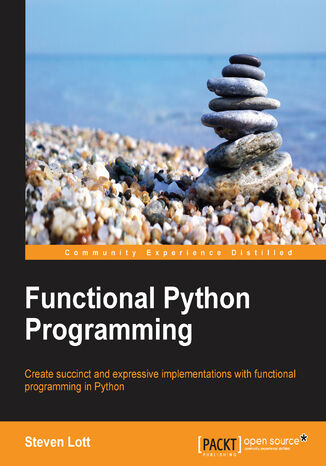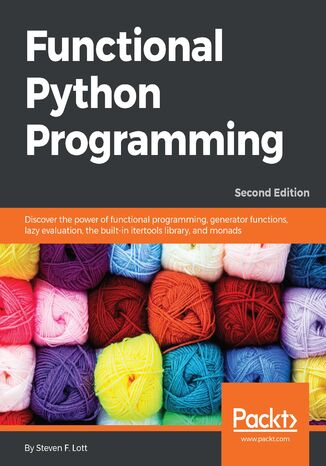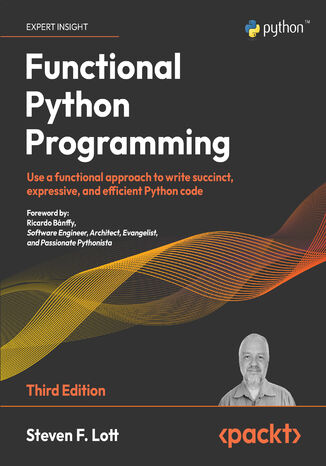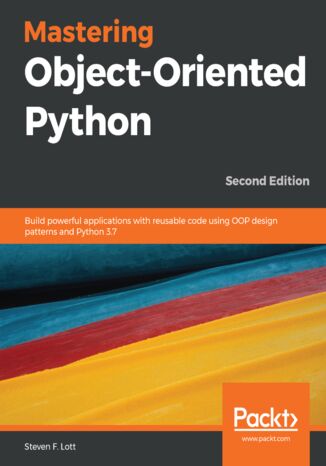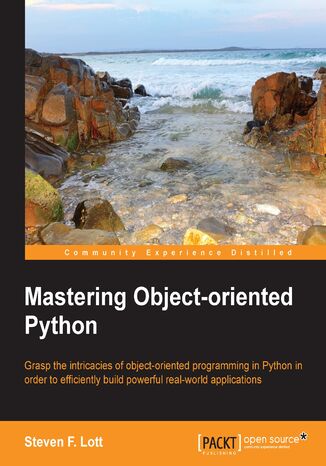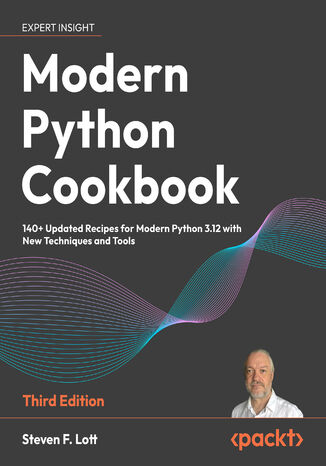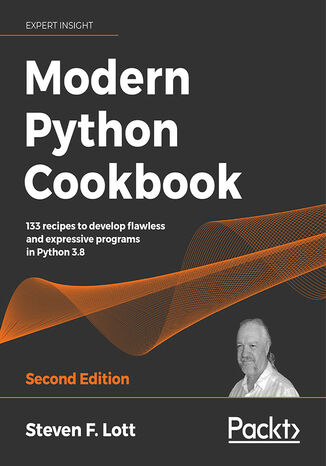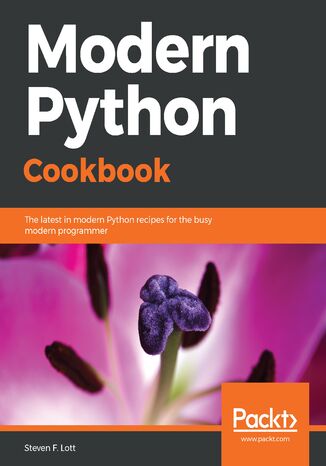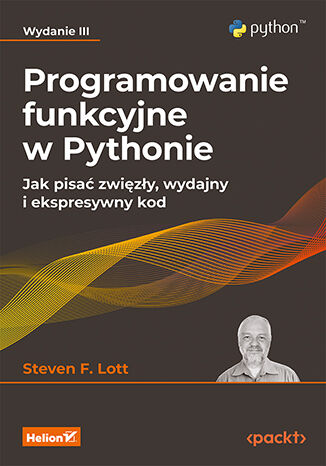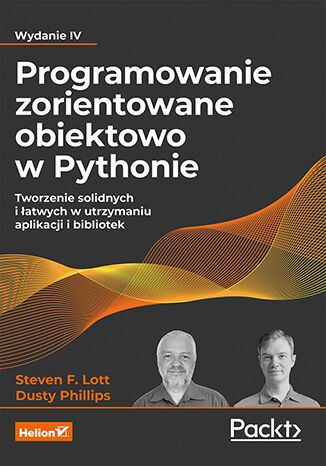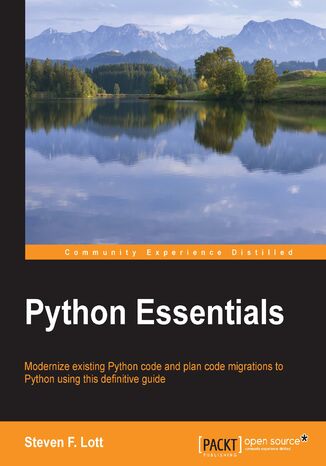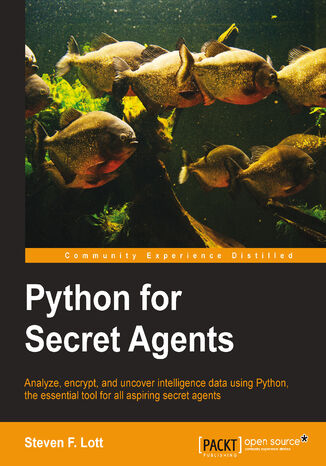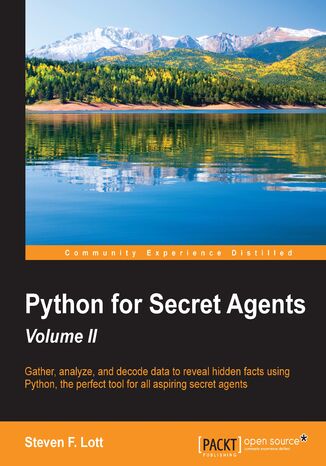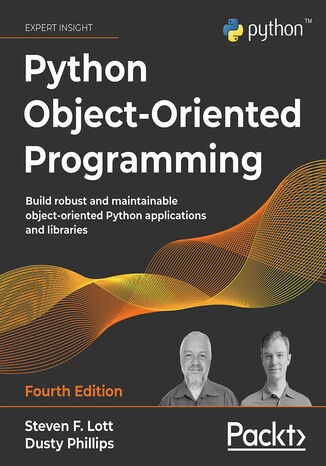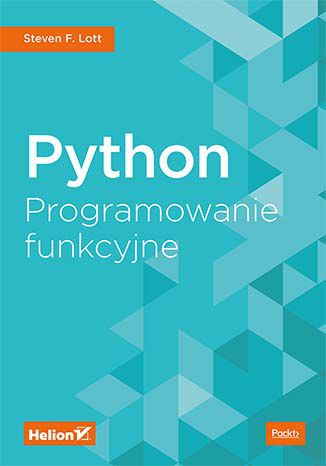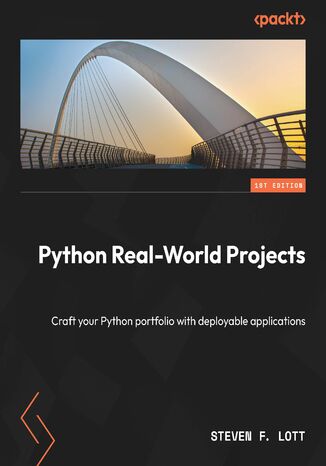Категорії
Електронні книги
-
Бізнес та економіка
- Біткойн
- Ділова жінка
- Коучинг
- Контроль
- Електронний бізнес
- Економіка
- Фінанси
- Фондова біржа та інвестиції
- Особисті компетенції
- Комп'ютер в офісі
- Комунікація та переговори
- Малий бізнес
- Маркетинг
- Мотивація
- Мультимедійне навчання
- Нерухомість
- Переконання та НЛП
- Податки
- Соціальна політика
- Порадники
- Презентації
- Лідерство
- Зв'язки з громадськістю
- Звіти, аналізи
- Секрет
- Соціальні засоби комунікації
- Продаж
- Стартап
- Ваша кар'єра
- Управління
- Управління проектами
- Людські ресурси (HR)
-
Для дітей
-
Для молоді
-
Освіта
-
Енциклопедії, словники
-
Електронна преса
- Architektura i wnętrza
- Безпека життєдіяльності
- Biznes i Ekonomia
- Будинок та сад
- Електронний бізнес
- Ekonomia i finanse
- Езотерика
- Фінанси
- Особисті фінанси
- Бізнес
- Фотографія
- Інформатика
- Відділ кадрів та оплата праці
- Для жінок
- Комп'ютери, Excel
- Бухгалтерія
- Культура та література
- Наукові та академічні
- Охорона навколишнього середовища
- Впливові
- Освіта
- Податки
- Подорожі
- Психологія
- Релігія
- Сільське господарство
- Ринок книг і преси
- Транспорт та спедиція
- Здоров'я та краса
-
Історія
-
Інформатика
- Офісні застосунки
- Бази даних
- Біоінформатика
- Бізнес ІТ
- CAD/CAM
- Digital Lifestyle
- DTP
- Електроніка
- Цифрова фотографія
- Комп'ютерна графіка
- Ігри
- Хакування
- Hardware
- IT w ekonomii
- Наукові пакети
- Шкільні підручники
- Основи комп'ютера
- Програмування
- Мобільне програмування
- Інтернет-сервери
- Комп'ютерні мережі
- Стартап
- Операційні системи
- Штучний інтелект
- Технологія для дітей
- Вебмайстерність
-
Інше
-
Іноземні мови
-
Культура та мистецтво
-
Шкільні читанки
-
Література
- Антології
- Балада
- Біографії та автобіографії
- Для дорослих
- Драми
- Журнали, щоденники, листи
- Епос, епопея
- Нарис
- Наукова фантастика та фантастика
- Фельєтони
- Художня література
- Гумор, сатира
- Інше
- Класичний
- Кримінальний роман
- Нехудожня література
- Художня література
- Mity i legendy
- Лауреати Нобелівської премії
- Новели
- Побутовий роман
- Okultyzm i magia
- Оповідання
- Спогади
- Подорожі
- Оповідна поезія
- Поезія
- Політика
- Науково-популярна
- Роман
- Історичний роман
- Проза
- Пригодницька
- Журналістика
- Роман-репортаж
- Romans i literatura obyczajowa
- Сенсація
- Трилер, жах
- Інтерв'ю та спогади
-
Природничі науки
-
Соціальні науки
-
Шкільні підручники
-
Науково-популярна та академічна
- Археологія
- Bibliotekoznawstwo
- Кінознавство / Теорія кіно
- Філологія
- Польська філологія
- Філософія
- Finanse i bankowość
- Географія
- Економіка
- Торгівля. Світова економіка
- Історія та археологія
- Історія мистецтва і архітектури
- Культурологія
- Мовознавство
- літературні студії
- Логістика
- Математика
- Ліки
- Гуманітарні науки
- Педагогіка
- Навчальні засоби
- Науково-популярна
- Інше
- Психологія
- Соціологія
- Театральні студії
- Богослов’я
- Економічні теорії та науки
- Transport i spedycja
- Фізичне виховання
- Zarządzanie i marketing
-
Порадники
-
Ігрові посібники
-
Професійні та спеціальні порадники
-
Юридична
- Безпека життєдіяльності
- Історія
- Дорожній кодекс. Водійські права
- Юридичні науки
- Охорона здоров'я
- Загальне, компендіум
- Академічні підручники
- Інше
- Закон про будівництво і житло
- Цивільне право
- Фінансове право
- Господарське право
- Господарське та комерційне право
- Кримінальний закон
- Кримінальне право. Кримінальні злочини. Кримінологія
- Міжнародне право
- Міжнародне та іноземне право
- Закон про охорону здоров'я
- Закон про освіту
- Податкове право
- Трудове право та законодавство про соціальне забезпечення
- Громадське, конституційне та адміністративне право
- Кодекс про шлюб і сім'ю
- Аграрне право
- Соціальне право, трудове право
- Законодавство Євросоюзу
- Промисловість
- Сільське господарство та захист навколишнього середовища
- Словники та енциклопедії
- Державні закупівлі
- Управління
-
Путівники та подорожі
- Африка
- Альбоми
- Південна Америка
- Центральна та Північна Америка
- Австралія, Нова Зеландія, Океанія
- Австрія
- Азії
- Балкани
- Близький Схід
- Болгарія
- Китай
- Хорватія
- Чеська Республіка
- Данія
- Єгипет
- Естонія
- Європа
- Франція
- Гори
- Греція
- Іспанія
- Нідерланди
- Ісландія
- Литва
- Латвія
- Mapy, Plany miast, Atlasy
- Мініпутівники
- Німеччина
- Норвегія
- Активні подорожі
- Польща
- Португалія
- Інше
- Przewodniki po hotelach i restauracjach
- Росія
- Румунія
- Словаччина
- Словенія
- Швейцарія
- Швеція
- Світ
- Туреччина
- Україна
- Угорщина
- Велика Британія
- Італія
-
Психологія
- Філософія життя
- Kompetencje psychospołeczne
- Міжособистісне спілкування
- Mindfulness
- Загальне
- Переконання та НЛП
- Академічна психологія
- Психологія душі та розуму
- Психологія праці
- Relacje i związki
- Батьківство та дитяча психологія
- Вирішення проблем
- Інтелектуальний розвиток
- Секрет
- Сексуальність
- Спокушання
- Зовнішній вигляд та імідж
- Філософія життя
-
Релігія
-
Спорт, фітнес, дієти
-
Техніка і механіка
Аудіокниги
-
Бізнес та економіка
- Біткойн
- Ділова жінка
- Коучинг
- Контроль
- Електронний бізнес
- Економіка
- Фінанси
- Фондова біржа та інвестиції
- Особисті компетенції
- Комунікація та переговори
- Малий бізнес
- Маркетинг
- Мотивація
- Нерухомість
- Переконання та НЛП
- Податки
- Соціальна політика
- Порадники
- Презентації
- Лідерство
- Зв'язки з громадськістю
- Секрет
- Соціальні засоби комунікації
- Продаж
- Стартап
- Ваша кар'єра
- Управління
- Управління проектами
- Людські ресурси (HR)
-
Для дітей
-
Для молоді
-
Освіта
-
Енциклопедії, словники
-
Електронна преса
-
Історія
-
Інформатика
-
Інше
-
Іноземні мови
-
Культура та мистецтво
-
Шкільні читанки
-
Література
- Антології
- Балада
- Біографії та автобіографії
- Для дорослих
- Драми
- Журнали, щоденники, листи
- Епос, епопея
- Нарис
- Наукова фантастика та фантастика
- Фельєтони
- Художня література
- Гумор, сатира
- Інше
- Класичний
- Кримінальний роман
- Нехудожня література
- Художня література
- Mity i legendy
- Лауреати Нобелівської премії
- Новели
- Побутовий роман
- Okultyzm i magia
- Оповідання
- Спогади
- Подорожі
- Поезія
- Політика
- Науково-популярна
- Роман
- Історичний роман
- Проза
- Пригодницька
- Журналістика
- Роман-репортаж
- Romans i literatura obyczajowa
- Сенсація
- Трилер, жах
- Інтерв'ю та спогади
-
Природничі науки
-
Соціальні науки
-
Науково-популярна та академічна
-
Порадники
-
Професійні та спеціальні порадники
-
Юридична
-
Путівники та подорожі
-
Психологія
- Філософія життя
- Міжособистісне спілкування
- Mindfulness
- Загальне
- Переконання та НЛП
- Академічна психологія
- Психологія душі та розуму
- Психологія праці
- Relacje i związki
- Батьківство та дитяча психологія
- Вирішення проблем
- Інтелектуальний розвиток
- Секрет
- Сексуальність
- Спокушання
- Зовнішній вигляд та імідж
- Філософія життя
-
Релігія
-
Спорт, фітнес, дієти
-
Техніка і механіка
Відеокурси
-
Бази даних
-
Big Data
-
Biznes, ekonomia i marketing
-
Кібербезпека
-
Data Science
-
DevOps
-
Для дітей
-
Електроніка
-
Графіка / Відео / CAX
-
Ігри
-
Microsoft Office
-
Інструменти розробки
-
Програмування
-
Особистісний розвиток
-
Комп'ютерні мережі
-
Операційні системи
-
Тестування програмного забезпечення
-
Мобільні пристрої
-
UX/UI
-
Веброзробка, Web development
-
Управління
Подкасти
If you’re a Python developer who wants to discover how to take the power of functional programming (FP) and bring it into your own programs, then this book is essential for you, even if you know next to nothing about the paradigm. Starting with a general overview of functional concepts, you’ll explore common functional features such as first-class and higher-order functions, pure functions, and more. You’ll see how these are accomplished in Python 3.6 to give you the core foundations you’ll build upon. After that, you’ll discover common functional optimizations for Python to help your apps reach even higher speeds. You’ll learn FP concepts such as lazy evaluation using Python’s generator functions and expressions. Moving forward, you’ll learn to design and implement decorators to create composite functions. You'll also explore data preparation techniques and data exploration in depth, and see how the Python standard library fits the functional programming model. Finally, to top off your journey into the world of functional Python, you’ll at look at the PyMonad project and some larger examples to put everything into perspective.
Steven F. Lott, Ricardo Bánffy
Not enough developers understand the benefits of functional programming, or even what it is. Author Steven Lott demystifies the approach, teaching you how to improve the way you code in Python and make gains in memory use and performance.Starting from the fundamentals, this book shows you how to apply functional thinking and techniques in a range of scenarios, with examples centered around data cleaning and exploratory data analysis. You’ll learn how to use generator expressions, list comprehensions, and decorators to your advantage. You don’t have to abandon object-oriented design completely, though – you’ll also see how Python’s native object-orientation is used in conjunction with functional programming techniques.By the end of this book, you’ll be well versed in the essential functional programming features of Python, and understand why and when functional thinking helps. You’ll also have all the tools you need to pursue any additional functional topics that are not part of the Python language.
Object-oriented programming (OOP) is a relatively complex discipline to master, and it can be difficult to see how general principles apply to each language's unique features. With the help of the latest edition of Mastering Objected-Oriented Python, you'll be shown how to effectively implement OOP in Python, and even explore Python 3.x. Complete with practical examples, the book guides you through the advanced concepts of OOP in Python, and demonstrates how you can apply them to solve complex problems in OOP. You will learn how to create high-quality Python programs by exploring design alternatives and determining which design offers the best performance. Next, you'll work through special methods for handling simple object conversions and also learn about hashing and comparison of objects. As you cover later chapters, you'll discover how essential it is to locate the best algorithms and optimal data structures for developing robust solutions to programming problems with minimal computer processing. Finally, the book will assist you in leveraging various Python features by implementing object-oriented designs in your programs.By the end of this book, you will have learned a number of alternate approaches with different attributes to confidently solve programming problems in Python.
Python is the go-to language for developers, engineers, data scientists, and hobbyists worldwide. Known for its versatility, Python can efficiently power applications, offering remarkable speed, safety, and scalability. This book distills Python into a collection of straightforward recipes, providing insights into specific language features within various contexts, making it an indispensable resource for mastering Python and using it to handle real-world use cases.The third edition of Modern Python Cookbook provides an in-depth look into Python 3.12, offering more than 140 new and updated recipes that cater to both beginners and experienced developers. This edition introduces new chapters on documentation and style, data visualization with Matplotlib and Pyplot, and advanced dependency management techniques using tools like Poetry and Anaconda. With practical examples and detailed explanations, this cookbook helps developers solve real-world problems, optimize their code, and get up to date with the latest Python features.
Python is the preferred choice of developers, engineers, data scientists, and hobbyists everywhere. It is a great language that can power your applications and provide great speed, safety, and scalability. It can be used for simple scripting or sophisticated web applications. By exposing Python as a series of simple recipes, this book gives you insight into specific language features in a particular context. Having a tangible context helps make the language or a given standard library feature easier to understand.This book comes with 133 recipes on the latest version of Python 3.8. The recipes will benefit everyone, from beginners just starting out with Python to experts. You'll not only learn Python programming concepts but also how to build complex applications.The recipes will touch upon all necessary Python concepts related to data structures, object oriented programming, functional programming, and statistical programming. You will get acquainted with the nuances of Python syntax and how to effectively take advantage of it.By the end of this Python book, you will be equipped with knowledge of testing, web services, configuration, and application integration tips and tricks. You will be armed with the knowledge of how to create applications with flexible logging, powerful configuration, command-line options, automated unit tests, and good documentation.
Modern Python Cookbook. The latest in modern Python recipes for the busy modern programmer
Python is the preferred choice of developers, engineers, data scientists, and hobbyists everywhere. It is a great scripting language that can power your applications and provide great speed, safety, and scalability. By exposing Python as a series of simple recipes, you can gain insight into specific language features in a particular context. Having a tangible context helps make the language or standard library feature easier to understand.This book comes with over 100 recipes on the latest version of Python. The recipes will benefit everyone ranging from beginner to an expert. The book is broken down into 13 chapters that build from simple language concepts to more complex applications of the language. The recipes will touch upon all the necessary Python concepts related to data structures, OOP, functional programming, as well as statistical programming. You will get acquainted with the nuances of Python syntax and how to effectively use the advantages that it offers. You will end the book equipped with the knowledge of testing, web services, and configuration and application integration tips and tricks. The recipes take a problem-solution approach to resolve issues commonly faced by Python programmers across the globe. You will be armed with the knowledge of creating applications with flexible logging, powerful configuration, and command-line options, automated unit tests, and good documentation.
Programowanie funkcyjne w Pythonie. Jak pisać zwięzły, wydajny i ekspresywny kod. Wydanie III
Mimo że Python nie jest typowym językiem programowania funkcyjnego, umożliwia pisanie kodu w sposób właściwy dla tego podejścia. W efekcie można tworzyć zwięzłe i eleganckie programy, które działają szybciej i zużywają mniej zasobów. Jeśli uważasz, że te argumenty uzasadniają zapoznanie się z funkcyjnym podejściem do programowania w Pythonie, to ta książka jest dla Ciebie. Dzięki temu praktycznemu podręcznikowi zrozumiesz, kiedy i dlaczego warto zastosować myślenie funkcyjne, a także jak korzystać z technik funkcyjnych w różnych scenariuszach. Dowiesz się również, jakie narzędzia i biblioteki przeznaczone do tego celu są dostępne w Pythonie i jak używać wyrażeń generatorowych, list składanych i dekoratorów. W tym wydaniu znalazły się nowe rozdziały dotyczące złożonych obiektów bezstanowych, funkcji kombinatorycznych i pakietu toolz, zawierającego zbiór modułów wspomagających pisanie programów funkcyjnych. Umieszczono tu ponadto sporo ciekawych przykładów, dotyczących choćby eksploracyjnej analizy danych i ich czyszczenia. W książce między innymi: najciekawsze biblioteki i wbudowane funkcje wyższego rzędu w Pythonie tworzenie funkcji generatorowych i leniwe wartościowanie implementacja dekoratorów do kompozycji funkcyjnej podpowiedzi typów w Pythonie obsługa współbieżności i implementacja usług sieciowych biblioteka PyMonad i tworzenie symulacji z obsługą stanów Chcesz tworzyć wydajny kod? Naucz się programowania funkcyjnego!
Steven F. Lott, Dusty Phillips
Python zasłużenie cieszy się ogromną popularnością. To język, który może służyć do wielu celów, szczególnie do szybkiego tworzenia niewielkich, wyspecjalizowanych programów. Projektowanie bardziej rozbudowanego, wyrafinowanego oprogramowania też jest możliwe, wymaga jednak zdobycia kilku ważnych umiejętności. Bardzo dobrym pomysłem okazuje się zastosowanie w programowaniu w Pythonie podejścia zorientowanego obiektowo. Tak tworzony kod jest czytelny, solidny, łatwy w rozbudowie i o wiele efektywniejszy w działaniu. Oto przyjazny przewodnik dla programistów Pythona, wyczerpująco wyjaśniający wiele zagadnień programowania obiektowego, takich jak dziedziczenie, kompozycja, polimorfizm, tworzenie klas i struktur danych. W książce szczegółowo omówiono zagadnienia obsługi wyjątków, testowania kodu i zastosowania technik programowania funkcyjnego. Opisano też dwa potężne zautomatyzowane systemy testowe: unittest i pytest. Zaprezentowano tematykę utrzymania złożonego oprogramowania napisanego w sposób zorientowany obiektowo, a także podano wskazówki odnoszące się do jego rozbudowy. Ważną częścią przewodnika jest omówienie zasad programowania współbieżnego we współczesnym Pythonie. Co ważne, poszczególne zagadnienia zostały zilustrowane diagramami UML, czytelnymi przykładami i studiami przypadków. W książce między innymi: kiedy korzystać z technik obiektowych implementacja obiektów i mechanizmu dziedziczenia w Pythonie stosowanie wyjątków, a także tworzenie testów jednostkowych i integracyjnych ważniejsze wzorce projektowe i ich implementacja w Pythonie statyczne typowanie dynamicznego kodu programowanie współbieżne przy użyciu asyncio Chcesz tworzyć solidny kod? Zorientuj się na obiekty!
Python is easy to learn and extensible programming language that allows any manner of secret agent to work with a variety of data. Agents from beginners to seasoned veterans will benefit from Python's simplicity and sophistication. The standard library provides numerous packages that move beyond simple beginner missions. The Python ecosystem of related packages and libraries supports deep information processing.This book will guide you through the process of upgrading your Python-based toolset for intelligence gathering, analysis, and communication. You'll explore the ways Python is used to analyze web logs to discover the trails of activities that can be found in web and database servers. We'll also look at how we can use Python to discover details of the social network by looking at the data available from social networking websites.Finally, you'll see how to extract history from PDF files, which opens up new sources of data, and you’ll learn about the ways you can gather data using an Arduino-based sensor device.
Steven F. Lott, Dusty Phillips
Object-oriented programming (OOP) is a popular design paradigm in which data and behaviors are encapsulated in such a way that they can be manipulated together. Python Object-Oriented Programming, Fourth Edition dives deep into the various aspects of OOP, Python as an OOP language, common and advanced design patterns, and hands-on data manipulation and testing of more complex OOP systems. These concepts are consolidated by open-ended exercises, as well as a real-world case study at the end of every chapter, newly written for this edition. All example code is now compatible with Python 3.9+ syntax and has been updated with type hints for ease of learning.Steven and Dusty provide a comprehensive, illustrative tour of important OOP concepts, such as inheritance, composition, and polymorphism, and explain how they work together with Python’s classes and data structures to facilitate good design. In addition, the book also features an in-depth look at Python’s exception handling and how functional programming intersects with OOP. Two very powerful automated testing systems, unittest and pytest, are introduced. The final chapter provides a detailed discussion of Python's concurrent programming ecosystem.By the end of the book, you will have a thorough understanding of how to think about and apply object-oriented principles using Python syntax and be able to confidently create robust and reliable programs.
Python. Programowanie funkcyjne
Zgodnie z paradygmatem programowania funkcyjnego największy nacisk należy kłaść na stałe i funkcje. Polega to na konstruowaniu funkcji oraz na obliczaniu wartości wyrażeń. W ten sposób otrzymuje się kod odporny na błędy. Python nie jest w pełni funkcyjnym językiem programowania, jednak pozwala na taki sposób pisania programów. Dzięki temu umożliwia tworzenie zwięzłego i eleganckiego kodu. Na przykład stosowanie wyrażeń generatorowych w Pythonie sprawia, że tworzone programy działają szybciej, ponieważ zużywają mniej zasobów. Niezależnie więc od stosowanego paradygmatu warto zapożyczyć pewne elementy programowania funkcyjnego i wykorzystać je do tworzenia ekspresyjnych i zwięzłych aplikacji w Pythonie. To znakomity podręcznik dla programistów, którzy chcą wykorzystać techniki i wzorce projektowe z funkcyjnych języków programowania, aby tworzyć w Pythonie zwięzłe, eleganckie i ekspresyjne programy - z czytelnym i łatwym w utrzymaniu kodem. Zawiera ogólny przegląd koncepcji funkcyjnych oraz wyjaśnia tak istotne pojęcia jak funkcje pierwszej klasy, funkcje wyższego rzędu, funkcje czyste, leniwe wartościowanie i wiele innych. Wnikliwie omawia sposób korzystania z tych funkcji w Pythonie 3.6, a także techniki przygotowywania i eksploracji danych. Ponadto pokazuje, w jaki sposób standardowa biblioteka Pythona pasuje do funkcyjnego modelu programowania. Co ważne, w książce znalazło się kilka przykładów prezentujących w praktyce opisane koncepcje. W książce między innymi: podstawy modelu programowania funkcyjnego działania na kolekcjach danych i przetwarzanie krotek projektowanie dekoratorów biblioteka PyMonad usługi sieciowe a programowanie funkcyjne Python: kod funkcyjny i funkcjonalny!
Python Real-World Projects. Craft your Python portfolio with deployable applications
In today's competitive job market, a project portfolio often outshines a traditional resume. Python Real-World Projects empowers you to get to grips with crucial Python concepts while building complete modules and applications. With two dozen meticulously designed projects to explore, this book will help you showcase your Python mastery and refine your skills. Tailored for beginners with a foundational understanding of class definitions, module creation, and Python's inherent data structures, this book is your gateway to programming excellence. You’ll learn how to harness the potential of the standard library and key external projects like JupyterLab, Pydantic, pytest, and requests. You’ll also gain experience with enterprise-oriented methodologies, including unit and acceptance testing, and an agile development approach. Additionally, you’ll dive into the software development lifecycle, starting with a minimum viable product and seamlessly expanding it to add innovative features. By the end of this book, you’ll be armed with a myriad of practical Python projects and all set to accelerate your career as a Python programmer.

